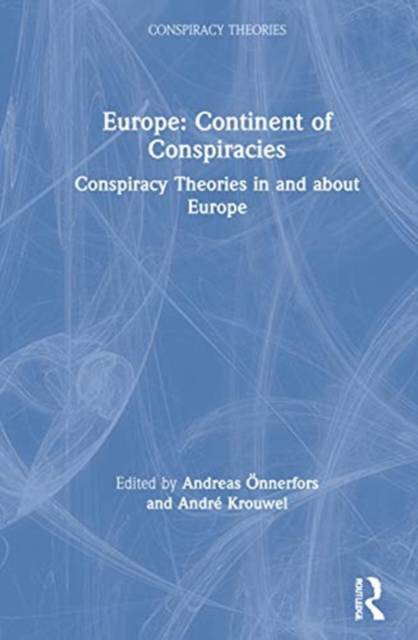
- Afhalen na 1 uur in een winkel met voorraad
- Gratis thuislevering in België vanaf € 30
- Ruim aanbod met 7 miljoen producten
- Afhalen na 1 uur in een winkel met voorraad
- Gratis thuislevering in België vanaf € 30
- Ruim aanbod met 7 miljoen producten
Europe
Continent of Conspiracies: Conspiracy Theories in and about Europe
Omschrijving
This edited volume investigates for the first time the impact of conspiracy theories upon the understanding of Europe as a geopolitical entity as well as an imagined political and cultural space.
Focusing on recent developments, the individual chapters explore a range of conspiratorial positions related to Europe. In the current climate of fear and threat, new and old imaginaries of conspiracies such as Islamophobia and anti-Semitism have been mobilised. A dystopian or even apocalyptic image of Europe in terminal decline is evoked in Eastern European and particularly by Russian pro-Kremlin media, while the EU emerges as a screen upon which several narratives of conspiracy are projected trans-nationally, ranging from the Greek debt crisis to migration, Brexit and the COVID-19 pandemic. The methodological perspectives applied in this volume range from qualitative discourse and media analysis to quantitative social-psychological approaches, and there are a number of national and transnational case studies.
This book will be of great interest to students and researchers of extremism, conspiracy theories and European politics.Specificaties
Betrokkenen
- Uitgeverij:
Inhoud
- Aantal bladzijden:
- 282
- Taal:
- Engels
- Reeks:
Eigenschappen
- Productcode (EAN):
- 9780367500672
- Verschijningsdatum:
- 30/04/2021
- Uitvoering:
- Hardcover
- Formaat:
- Genaaid
- Afmetingen:
- 156 mm x 234 mm
- Gewicht:
- 576 g

Alleen bij Standaard Boekhandel
Beoordelingen
We publiceren alleen reviews die voldoen aan de voorwaarden voor reviews. Bekijk onze voorwaarden voor reviews.










